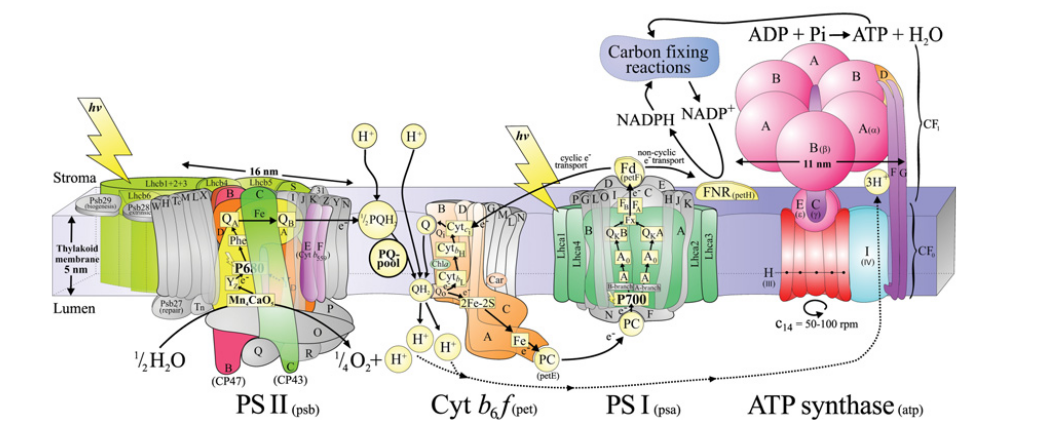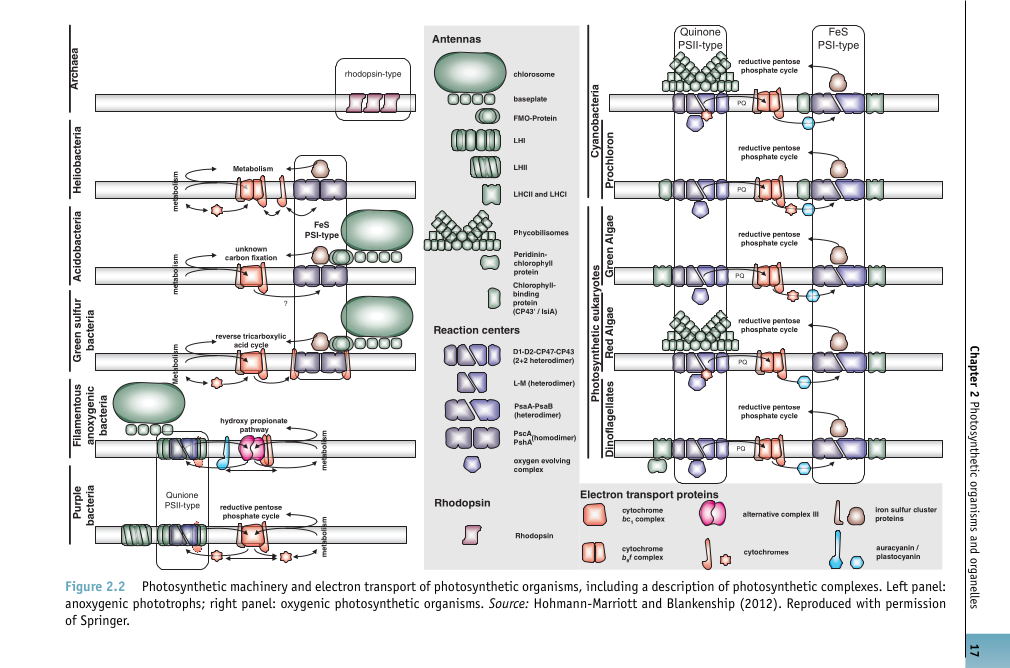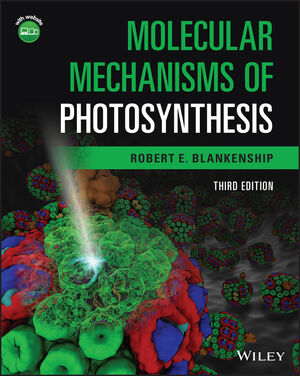This is a book that I strongly to anyone with a reasonable biochemistry/chemistry background. Reading this book inspired me to create a community dedicated to photosynthesis, because I want to follow the work in this field more closely.
Photosynthesis is a topic introduced early during our education. We are taught that light consists of bundles of energy, and that plants use the energy from carried by sunlight to build carbohydrates from water and CO2.
Around high school and in introductory college level classes many of us also learn that plants are green because of the chlorophyll molecules, which absorb the blue and the red regions of the spectrum and leave enough green behind to be reflected. The absorbed light is used to kick-out an electron from a magnesium ion that is held at the center of the chlorophyll molecules, and this electron begins a sequence of redox reactions that eventually leads to the production of metabolic energy and carbohydrates.
This simplified description provides one with the the overall picture of the process, and it is more than sufficient for most people. But my gripe with this description is that many students may leave photosynthesis class without realizing just how spectacular and complex the system actually is.

The photosynthetic machinery is by far the most advanced light-harvesting system that we know of. It uses a combination of many multiple physical principles - efficient energy transfer processes to move energy from light harvesting antennas into reaction centers, the ability to selectively funnel energy into non-radiative and non-photochemical quenching channels as a photoprotective mechanism, it utilizes as-of-today poorly understood 'superexchange' electron transfer mechanisms, and many more things that you can learn about in the recommended book.
There is also the added complexity that photosynthesis is extremely diverse, with different organisms having evolved very different solutions to meet their specific needs. Here is a figure from the text in which the photosynthetic assemblies from different types of organisms are compared:

Maybe this post can inspire someone to take a look at this book. And, if so, hopefully they will also find a lot of value in it!
